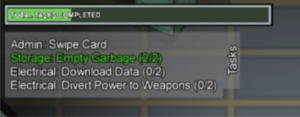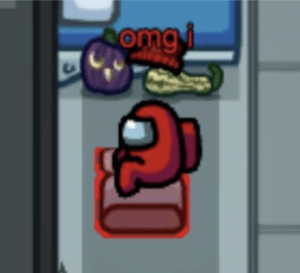Among Us is a cross-platform online social deduction game designed by Marcus Bromander. The game caters to mostly everyone as it’s easily accessible; however, the game would run more smoothly when playing with close friends and family members due to more group chemistry and willingness to participate.
There are two primary roles that are assigned to players: crewmate and imposter. There are two ways for the crewmates to win the game. One is when each crew member completes their given tasks for the ship. These tasks are spaced out in the sense that you can’t ‘speedrun’ them in the first few minutes of the game – they’re meant to be completed in an orderly fashion. The other way to win as crewmates is to vote off the imposters in the ship. The role of the imposter is to kill off crewmates to prevent them from completing the tasks to maintain the integrity of the ship. They also have the ability to sabotage equipment on the ship such as the lights which impair visibility for crewmates, the oxygen tank which causes all of the oxygen to deplete slowly, until there is no longer oxygen in the air, and more. These are all mechanics that buy time and create chaos for imposters to find an opening to kill off a straggling crewmate.

“Task bank + task bar for crewmate role.”
As it is a social deduction game, the way you portray yourself/behave in the game as an imposter matters if you don’t want any fingers pointed at you. From my experience, a red flag is when a player does a lot of “roaming,” and doesn’t seem to be completing tasks. This is usually an indication that someone is an imposter. There’s also a vent feature that allows imposters to travel and hide around the map – so in group discussions, when a player was said to be at two places at once at a particular timestamp, it’s also an indication that they could be an imposter. A good imposter would maneuver the map in a way they can establish a solid alibi while periodically dropping off without raising suspicion to, well, go on a killing spree.
After playing the game myself, I think the addition of roles beyond a crewmate and imposter would be a great addition. Maybe a medic role to revive a fallen crewmate, an engineer/worker role that can remotely fix parts of the ship. VOIP/proximity chat would be a hilarious addition as well.

“Imposter venting! The animation when venting is visible when in another player’s FOV, also security cameras!”
Among Us exemplifies social deduction through its integration of formal game elements within the Mechanics-Dynamics-Aesthetics (MDA) framework. Core mechanics such as task completion, sabotage, and voting are pivotal; they dictate the social interactions that underpin the game. Tasks are what differentiate crewmates from imposters, who have to ‘fake’ undergoing tasks – otherwise, it’ll raise suspicion. The sabotage mechanic disrupts normal play patterns, forcing players to immediately relocate and assess the issue, providing imposters opportunities to kill/or establish alibis. The central voting system encapsulates the game’s focus on persuasion and deduction, where players must discuss, align, or deceive to eliminate potential suspects. These mechanics lead to dynamic experiences of trust formation, deception, and alliance building which are all important aspects of the emergent narrative of suspense and betrayal experienced by players. The game’s simple but functional aesthetic design supports these dynamics, enhancing the accessibility and emotional tension that make Among Us fun and engaging.




